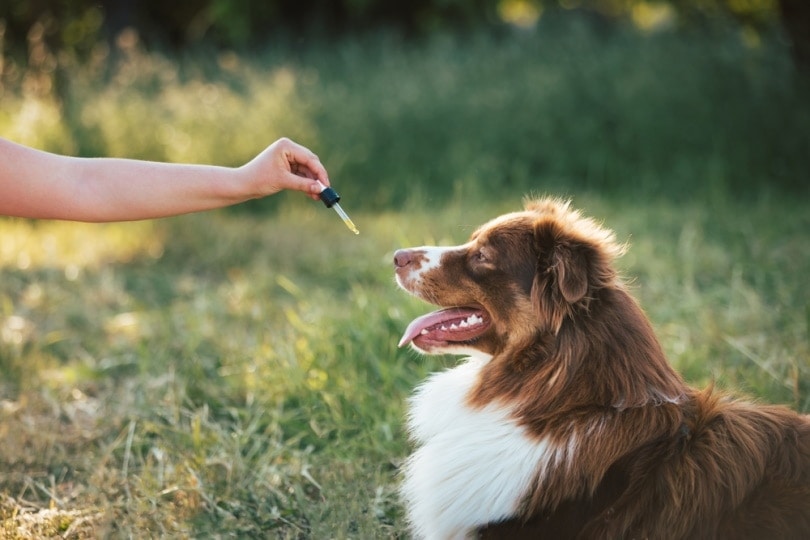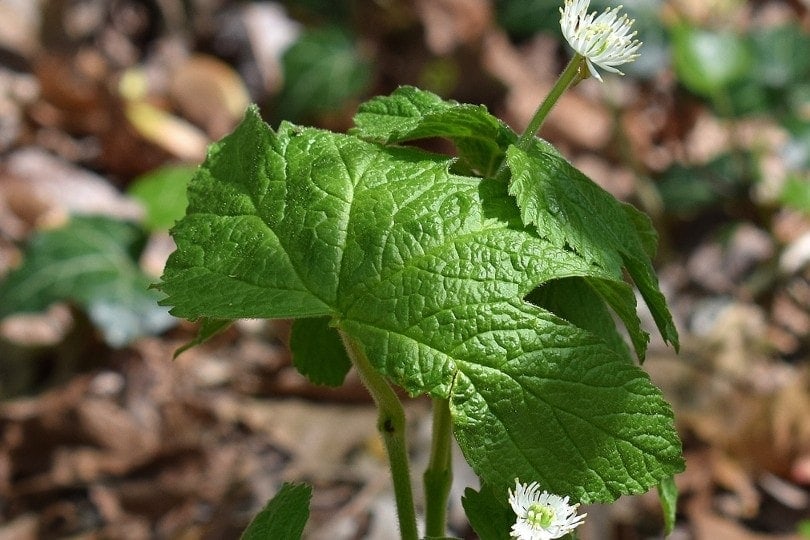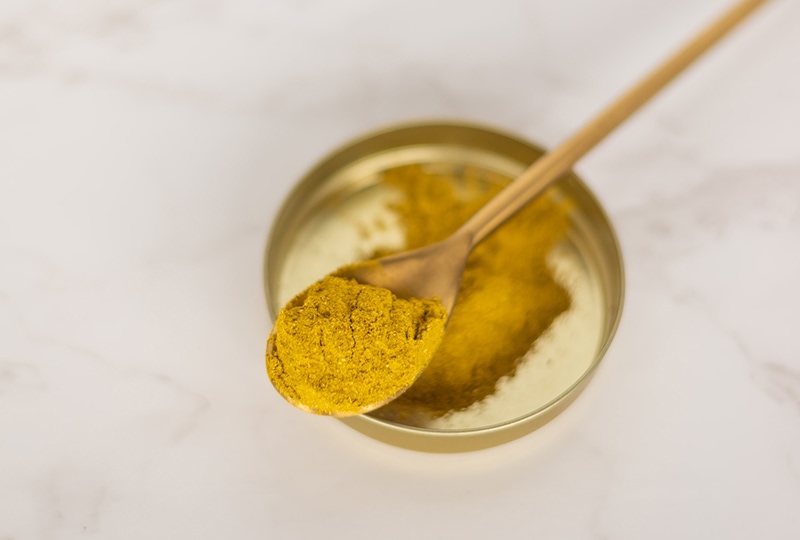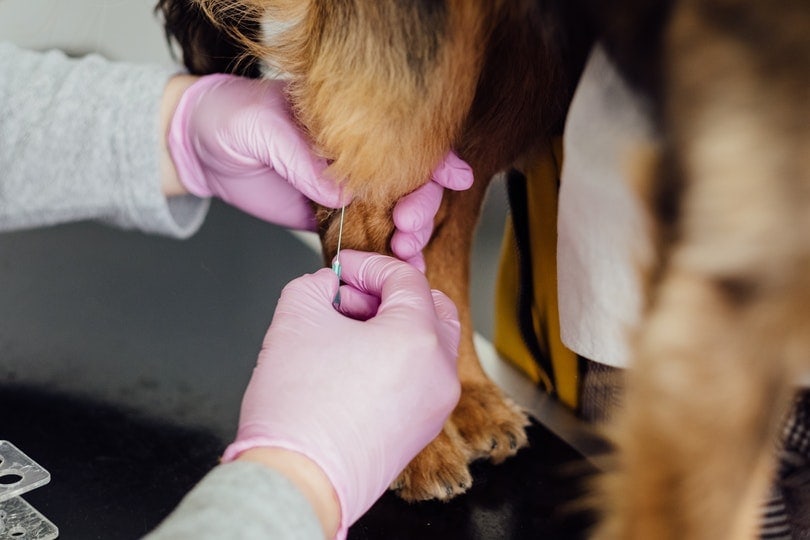Natural Alternatives to Antibiotics for Dogs
Updated on

Click to Skip Ahead
The required treatment for many health conditions is antibiotics, and they have been responsible for saving many lives. However, in recent years, there has been a growing concern that antibiotics are overprescribed, leading to the medications being less effective. But did you know there are natural remedies that can help treat certain health conditions?
If you’ve been looking for a natural treatment for your dog’s health condition, this list has eight options for you to look into.
Do note that you should never replace antibiotics with a different product if your veterinarian hasn’t approved it. You should always follow your vet’s advice.
The 8 Natural Alternatives to Antibiotics for Dogs
1. Apple Cider Vinegar

There are many advantages of apple cider vinegar, and it is safe to give to most dogs, but you should check with your vet first.
It can act as a natural ear cleaner, works on ear infections, and helps prevent a buildup of bacteria and yeast. It’s also known to act as a natural antibiotic and antiseptic and can help stop infections.
You can add 1/2 tablespoon to your small to medium-sized dog’s water or 1 tablespoon for large breeds. You can also try adding it to their food if they don’t appreciate vinegar in their drinking water.
2. Calendula

Calendula is also known as pot marigold. It contains antioxidants and has been used as an anti-inflammatory and sometimes to prevent gastric ulcers and lower blood sugar.
It can be helpful for skin conditions like hot spots, so it’s typically used topically on the skin as a salve, cream, ointment, or oil. It can also be given orally as a tincture.
3. Coconut Oil

Coconut oil can work as an oral and topical antimicrobial for healing wounds. It can also improve the dog’s skin and coat, increase energy levels, improve digestion, and help reduce allergic reactions. It can also help dogs with cognitive function.
If your dog is at a healthy weight, you can add a small amount to their food, and it can also be applied to any problem skin areas.
4. Goldenseal

Goldenseal is an herb that works as an antibiotic by preventing bacteria from attaching to cell walls. It’s effective for eye infections and gastrointestinal issues.
It should only be used to treat the issue, however, and not on an ongoing basis. It can be made into tea and used as an eyewash for eye issues. It can also be used as a poultice or tincture for other conditions.
5. Manuka Honey

Manuka honey is from New Zealand and Australia and comes from bees that pollinate the manuka plant. This honey is known for its antiviral, antifungal, and antibacterial qualities and can help with healing wounds.
A small amount of honey given to your dog daily can prove beneficial, but the amount that you give depends on their size. For example, toy dogs should be given ¼ teaspoon and a giant breed 1 tablespoon.
6. Olive Leaf

The extract of the olive leaf works as an antimicrobial and antiviral and can be used for high blood sugar, high blood pressure, and inflammation.
It’s given by mouth as a liquid extract or capsule. It can also be made into tea and is available in powdered form, which can be added to your dog’s food.
7. Oregano Oil

Oregano oil can be effective against colds but is known to work well as an antifungal and antibacterial treatment. The key ingredients in oregano oil are carvacrol and thymol.
It can be used internally and topically, but you need a vet’s guidance on how to use it for your dog. It is considered a “hot oil,” which means it can burn tissue.
8. Turmeric

You might think of turmeric as a seasoning, but it also has antifungal, antibacterial, anti-inflammatory, and antiviral properties. It’s additionally been studied for being effective against certain cancers.
It can be taken in tablet, powder, and liquid form, and many dog owners make it into a homemade paste. You can find several recipes online.
Antibiotics for Dogs
There are quite a few infections and illnesses that your dog can come down with that will require antibiotics. In most cases, it’s the only cure.
Unfortunately, there is a rising issue with antibiotic resistance and the misuse of antibiotics. Abusing antibiotics is caused by taking antibiotics for medical problems, such as viruses or parasites, that aren’t affected or cured by antibiotics.
Antibiotic resistance tends to happen when your doctor tells you to take the medication for 10 days, but by day 5, you’re feeling better and stop taking it. If this happens with your dog, there’s a chance of relapse or their bodies developing resistance.
What this means is that your dog should only be on antibiotics for serious conditions that can only be treated by antibiotics, and you must ensure that you give them all of the medication.

Naturopathy for Dogs
Naturopathy has a market for both humans and pets. It is a method by which natural means are used to help with health conditions rather than the more conventional means. This can include everything from doing acupuncture to using herbs for treating illnesses.
Using natural antibiotics can be effective for certain conditions and is beneficial for the healing process. Natural antibiotics are best used as a preventative treatment by helping to prevent infections or stop them from worsening.
But you should always speak to your vet before adding anything new to your dog’s diet or trying an herbal remedy. Many suggestions out there have the potential to be effective but can be dangerous, such as anything to do with garlic.
You’ll need to ensure that the remedy is safe for your dog, and you should know how much of it they should take. Many vets are supportive of naturopathy when they know that it can help your dog.

When You Shouldn’t Use Natural Antibiotics
There are situations where natural remedies shouldn’t be used in place of antibiotics:
- Your dog is already on medication.
- They have a health condition that might react negatively to the natural remedy.
- They have a serious bacterial infection that needs prescribed antibiotics.
- They have had a bad reaction to natural remedies in the past.
 Final Thoughts
Final Thoughts
Most of the natural antibiotics on this list have had general studies conducted on them, but more needs to be done, particularly relating to pets. If your dog has a minor condition, natural antibiotics might help. But no matter how benign an herbal remedy might seem, you must speak to your vet before attempting any kind of medical treatment yourself.
Featured Image Credit: 24K-Production, Shutterstock











